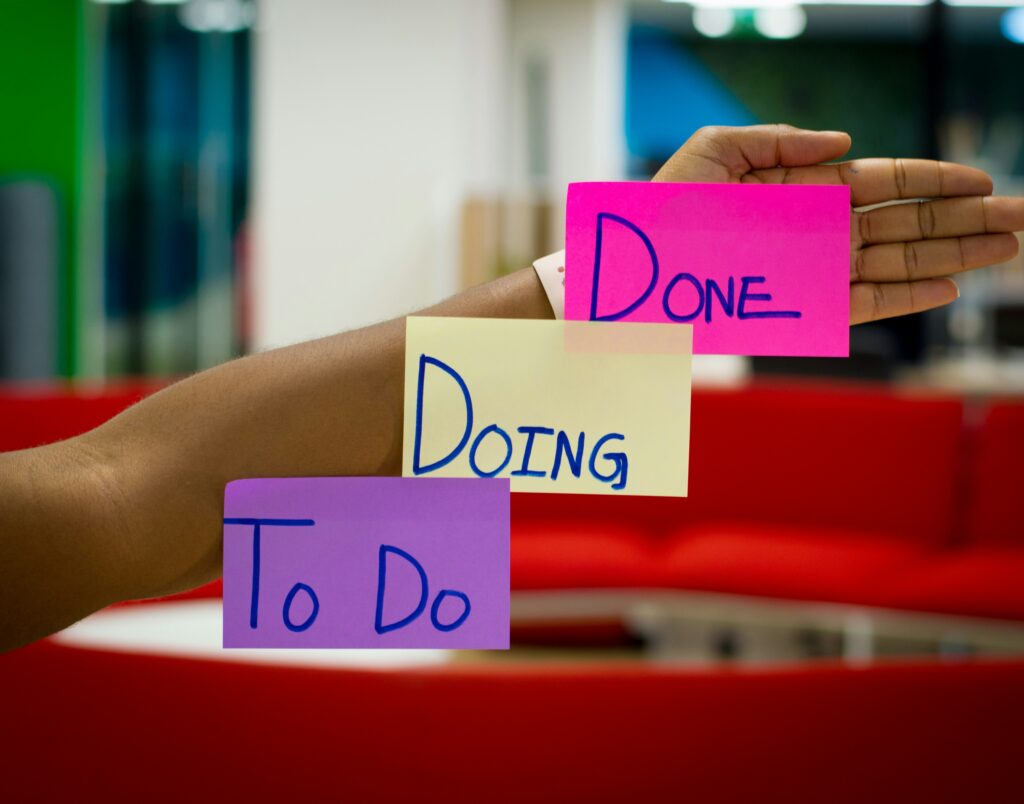
Best answers to most common inteview questions
Affiliate links may be used in this post. I may receive a small commission at no extra cost to you if you make a purchase through my affiliate link. Read my full disclosure policy here.
TELL ME ABOUT YOURSELF
Best Answer: Provide a brief overview of your professional background, focusing on relevant experiences and skills. Highlight accomplishments that demonstrate your suitability for the role. Match it you the job description and make it relevant to each job application, be passionate about the position and the company.
Don’t: Avoid discussing personal information unrelated to the job. Don’t ramble or provide a chronological history of your life or repeat what is on your resume.
Example: “I’m a marketing professional with a passion for digital strategy and content creation. In my previous role, I managed social media campaigns that resulted in a 40% increase in engagement. I also specialize in web design and take a huge interest in programing companies websites. I am hardworking, diligent and skilled employee, who is flexible and loves enquiring new skills. Outside of work I like travelling and reading self development books to improve.
What are your strenghs?
Best Answer: Highlight strengths relevant to the job and support them with specific examples or achievements. Tailor your strengths to match the job requirements.
Don’t: Don’t list generic strengths without examples. Avoid strengths that are irrelevant to the job.
Example: “One of my strengths is my ability to analyze data and derive actionable insights. For example, I implemented a new reporting system that improved efficiency by 20%. I have high standards, I am flexible, creative and take ownership of issues and challenges. I try to simplify the tasks and like fast paced workplace. These strengths will add value to your team.”
What are your weaknesses?
Best Answer: Discuss a genuine weakness that you’ve recognized and actively worked to improve. Show self-awareness and describe steps taken to overcome it.
Don’t: Don’t mention a weakness critical to the job. Avoid clichés or weaknesses that are unrelated to professional skills.
Example: “I used to struggle with public speaking, but I enrolled in a public speaking course and joined a toastmasters group to improve. Now, I feel much more confident presenting to large audiences.”
Why do you want to work here?
Best Answer: Demonstrate knowledge of the company and explain how your values and career goals align with its mission and culture. Discuss specific aspects of the company that appeal to you eg sustainability, employee retention.
Don’t: Don’t give generic answers or focus solely on salary or benefits. Avoid appearing disinterested or uninformed about the company.
Example: “I’m excited about the opportunity to work here because of your commitment to innovation and community engagement. I admire how your company values sustainability and giving back to the community. I researched your company and I like your high standards, vision and positive work culture. “
Can you tell me about a challenging situation you faced at work and how you handled it?
Best Answer: Use the STAR method (Situation, Task, Action, Result) to structure your response. Describe the situation, your actions, and the positive outcome.
Don’t: Don’t dwell on negative aspects or blame others. Avoid unrelated or personal examples.
Example: “One challenging situation I encountered at work was when our team faced a sudden deadline for a project due to unforeseen circumstances. The timeline was tight, and there were multiple stakeholders involved, each with their own expectations and priorities. To handle this situation effectively, I immediately convened a meeting with the team to assess the scope of work, prioritize tasks, and allocate resources efficiently. We worked collaboratively to develop a streamlined action plan, dividing responsibilities based on individual strengths and expertise. Despite the pressure, I maintained open communication with stakeholders, providing regular updates on our progress and addressing any concerns promptly. Additionally, I remained flexible and adaptable, ready to pivot our approach if needed to ensure we met the deadline without compromising quality. By fostering teamwork, clear communication, and a solutions-oriented mindset, we successfully navigated the challenge and delivered the project on time, earning positive feedback from both our team members and stakeholders.”
Where do you see yourself in 5 years?
Best Answer: Express enthusiasm for the role and discuss your career goals within the company. Show a willingness to grow and take on additional responsibilities.
Don’t: Don’t give vague answers or mention plans that don’t align with the company’s trajectory or show too much willingness to be in your bosses role unless you know that he wants to be promoted and move on.
Example: “In five years, I see myself working for this company. In the fist 6 months I would like to concentrate on getting to know the company and company’s product/services and then concentrate to see if I can take on some more responsibilities to free up your time. In a long run, I would like to maybe cooperate with other departments to see how we can work better together. However, 5 years is a long time to plan anything concrete, I am just excited about my future opportunities.”
Why did you leave your previous job?/why are you looking to leave your current job?
Best Answer: Be honest but diplomatic. Focus on seeking new challenges, opportunities for growth, or a better fit for your skills and interests. Again, match it to the new job description.
Don’t: Don’t badmouth your previous employer or colleagues. Avoid discussing personal conflicts or negative reasons like salary complaints.
Example: “As much I love working for my current employer, I’m looking for new opportunities to expand my skill set and take on more responsibilities. While I enjoyed my time at my previous company, I’m excited about the potential for growth and development here. I am excited about working with new colleagues and learning from you. Also, I want to gain knowledge in a new industry I have never worked in.”
What do you know about our products/services?
Best Answer: Demonstrate knowledge of the company’s offerings, recent developments, and how they impact the industry or customers. Share any positive experiences you’ve had with their products/services.
Don’t: Don’t give vague or incorrect information. Avoid showing a lack of interest or awareness about what the company does.
Example: “Thank you for asking. I’ve taken the time to thoroughly research your products/services prior to this interview, and I’m impressed by the comprehensive range and quality you offer. From my understanding, your company specializes in [brief description of products/services], providing innovative solutions to [specific needs or pain points of customers]. I particularly admire how your products/services [mention a unique feature or benefit]. Additionally, I’ve read positive reviews from satisfied customers who have praised your company’s commitment to [mention any notable aspects such as customer service, reliability, or sustainability initiatives]. Overall, I believe your products/services are not only highly regarded in the industry but also align well with my own values and expertise, making me excited about the opportunity to contribute to your team.”
How do you handle pressure or stressful situations?
Best Answer: Describe a time when you successfully managed stress or pressure at work. Discuss your strategies, such as prioritizing tasks, seeking support, or maintaining a positive attitude.
Don’t: Don’t say you never get stressed or overwhelmed. Avoid mentioning coping mechanisms that are unhealthy or counterproductive.
Example: “During a high-pressure project, I remained calm and focused by breaking down tasks into manageable steps, seeking input from team members, and maintaining open communication with stakeholders. I block out any distraction and try to stay calm. I am staying flexible and if I need to put extra time and work over time, that is acceptable to me. I actually think to work under the pressure is not a bad thing and makes me more resilient.”
Why should we hire you?
Best Answer: Customize your answer to highlight the skills, experiences, and qualities that align most closely with the job requirements and company culture. This shows that you’ve done your homework and understand the company’s nature. Emphasize what you can bring to the table and how you can help the department. Provide concrete examples. Express genuine enthusiasm for the company. Be positive about being employed by the company.
Don’t: Steer clear of generic statements that could apply to any candidate and avoid criticizing others. Avoid exaggerating your accomplishments or making unrealistic promises about what you can deliver. While you want to express enthusiasm for the role, avoid sounding desperate or overly eager. Maintain confidence in your abilities and value proposition.
Example: “I believe you should hire me because I have a strong track record of success in [mention relevant field or industry], with [X years/months] of experience in [specific skills or areas relevant to the job].
I’m particularly excited about the opportunity to bring my expertise in [mention specific skill or area] to your team and help [mention a goal or challenge the company is facing].
Furthermore, I’m deeply passionate about [mention something related to the company’s mission, values, or industry]. I admire [specific aspect of the company], and I’m eager to contribute to [mention a specific initiative or goal of the company].
Overall, I believe my combination of skills, experience, and enthusiasm make me a perfect fit for this role. I’m committed to delivering results and exceeding expectations, and I’m excited about the opportunity to join your team and make a positive impact.



